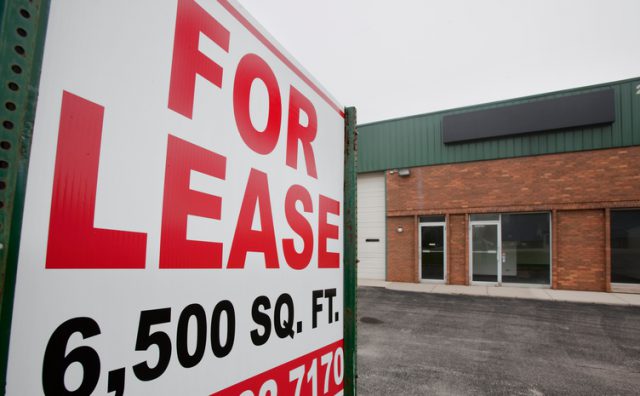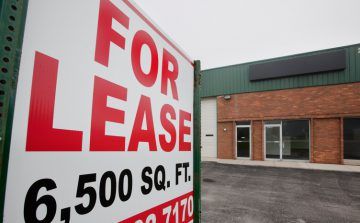The number of buy-to-let landlords moving onto commercial properties has tripled in the past three years, according to experts in the sector.
Investors are fleeing the traditional buy-to-let property sector and turning instead to shops, restaurants and offices as alternative investment options.
There are now less than three months until the Government’s reduction in tax relief on buy-to-let landlords’ finance costs is introduced, which will put thousands of investors in danger of making a loss.
The change will also push around 22% of landlords into the higher tax bracket.
More than 100,000 landlords purchased properties in a limited company structure last year to avoid the change, but many are now concerned that the Government might make these investors subject to tougher taxes too.
George Walker, a commercial auction partner at Allsop, says the auction house has witnessed three times the number of buy-to-let converts moving onto commercial properties since the tax changes were announced.
“We’re getting a lot of investors into our market because of the changes to buy-to-let,” he reports. “Once they have bought one, they can’t believe the simplicity and want to do it again.”
Case study
Seasoned landlord Graham Chilvers, who has 30 years’ experience in the sector, has turned to commercial properties for this reason.
He doesn’t plan to sell any of the 75 residential properties he has purchased over the years, and is confident that he will continue to be able to pay his mortgages, as they are all relatively small.

Buy-to-Let Landlords Start Buying Commercial Properties Instead
However, he won’t buy any more and is already committed to commercial properties.
“I thought about going down the limited company route, but I understand the Government are already looking into closing that loophole, and I think it would cost too much to do,” he explains.
Moving onto a limited company can also have significant tax implications, with owners potentially incurring Stamp Duty and Capital Gains Tax liabilities.
Instead, Chilvers will continue to buy property, but will instead focus on garages, commercial buildings and industrial estates.
Commercial properties
Yields are typically higher for landlords of commercial properties – while a buy-to-let investor might expect the value of their property to increase as well as taking monthly rental income, a commercial yield will be higher from rent, but price growth is less reliable.
Another bonus is that, generally, tenants take on many of the costs that a landlord would have to deal with in the residential sector, such as insurance and repairs.
Tenants also sign up for longer leases, meaning a more reliable income stream. However, void periods can also be longer.
Retail units and small offices are the most popular property types for buy-to-let converts. Walker reports that shops form around 70% of the auction house’s lots. Leisure, which includes restaurants, cafes and gyms, makes up 10%. Offices and industrial lots, such as small factories, each make up a further 10%.
It is advised that landlords download the tenant business’ accounts from Companies House to determine the quality of the occupier. Make sure the business looks in good shape and ask the seller about their relationship with the tenants.
If you’re looking for a shop or restaurant, visit the location to see how busy it is. Consider its opening hours, and how much demand and competition there is in the area.
It’s also essential to find out the terms and length of the lease, rent paid and when the next rent review is due.
Commercial property mortgages
High street banks can be difficult when it comes to commercial lending, warns David Whittaker, of broker Mortgages for Business. They are less likely to offer interest-only mortgages and will often only lend for the period of an existing lease, which can be too short to repay the whole loan.
“The regulator is not keen on long-term interest-only, because property prices in the commercial sector can be quite a bit more volatile,” he explains. “It’s an illiquid market, so lenders want to see you paying down the capital over the period of the loan.”
Typically, they will allow for an interest-only period at the beginning, after which capital must also be repaid.
If a property is vacant, landlords may struggle to persuade a high street bank to lend. A good surveyor can assess the area and property and draw a conclusion about how easily the lot will be let.
Although challenger banks can be a bit more flexible, rates tend to be higher.
And don’t assume that a portfolio of residential loans with a high street bank will support your case for a commercial mortgage with the same bank – these divisions often do not communicate with each other.
A good rate for a commercial property mortgage is around 5-5.5%, rising to 7-8% at the very highest.
The risks
Always hire a good solicitor with experience in commercial properties to examine the terms of the lease and title, and organise the sale quickly and correctly.
If you plan to buy at auction, Walker recommends attending an auction day first to experience the process and see what’s on offer. Once you’re ready to buy, you must be prepared. Examine the terms well in advance and arrange any finance if you need to borrow. As the hammer comes down, you are contractually obliged to buy the property, and the auction house takes 10% of the price on the day you buy – so don’t rush in.
Landlords must also understand that they have significantly less protection with commercial mortgages than with buy-to-let or residential loans. Lenders can call in the mortgage at any point and hike rates depending on market conditions.
Mortgages also tend to be variable, with a margin over Bank Rate or Libor. If the rate is not fixed, you are vulnerable to market fluctuations.
Have you or do you plan to move into commercial properties following the forthcoming tax change? Let us know!







